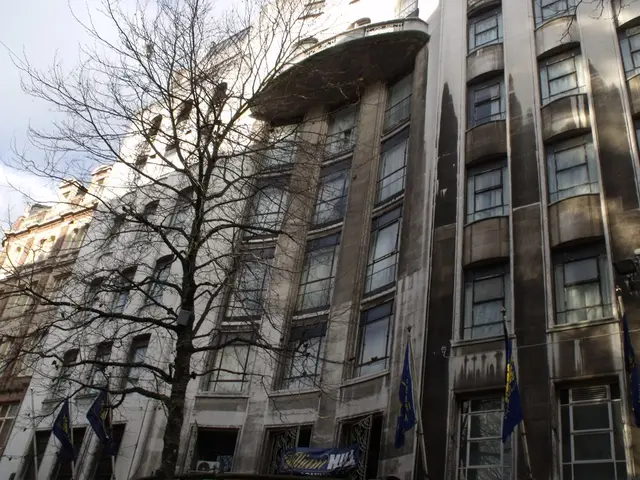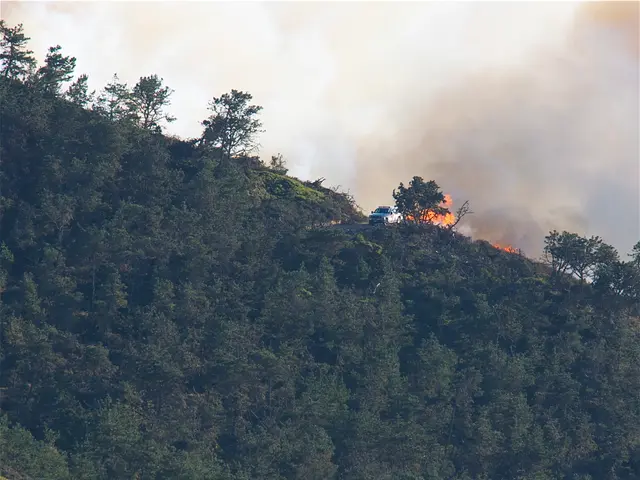Raging wildfires, fueled by a heatwave and strong winds, sweep through Europe
Wildfires Ravage Southern Europe: A Summer of Devastation
Wildfires have been ravaging southern Europe this summer, causing widespread destruction and displacement across multiple countries. The 2025 wildfire season has been marked by a combination of climate change-driven heatwaves, drought, and human activities, creating a highly volatile fire environment.
Climate Change and Human Factors
Repeated severe heatwaves since spring have caused extreme drying, increasing the wildfire risk. Temperatures have frequently exceeded 40°C, with some areas like southeastern Turkey reaching 50.5°C. Hot winds, exceeding 80 km/h, have spread fires rapidly. Careless farming practices, improperly maintained power lines, and lightning storms have also sparked many wildfires. Particularly severe drought and drying in southeastern Europe set the stage for late-summer fires.
Impacted Locations
Spain, Portugal, Italy, Greece, Turkey, France, and the Balkans region have been significantly affected by these wildfires. In Spain, multiple major fires are being battled simultaneously, leading to large-scale evacuations in places like Tarifa. Portugal has seen a 17-fold increase in forest area burned compared to 2024, with the government restricting forest access and banning some agricultural equipment use. Many cities in Italy and Greece have been placed on red heat alert, with Greek islands like Chios and Zakynthos severely affected. Fires and smoke have been reported over Montenegro and Albania, while the largest wildfires in almost 80 years have been recorded in the southern Aude department of France, disrupting rail services.
Prevention and Mitigation Measures
To reduce accidental ignitions, Portugal has banned the use of certain agricultural equipment during fire risk periods. Rapid evacuations and confinement orders have been implemented in affected areas to protect the population. Long-term measures to manage landscapes, improve firebreaks, and adapt to warming climate trends are being considered as necessary given the ongoing pattern of warming and drying.
Tragedy and Investigations
Unfortunately, the wildfires have taken a toll on human life. In Spain, a volunteer firefighter died from severe burns while attempting to create firebreaks near the town of Nogarejas. Police are investigating several arson cases, including a 63-year-old woman suspected of starting a series of fires in Galicia's Muxia area in August and a male firefighter arrested for fires started in the Avila area north of Madrid two weeks ago.
The Pope's Response
The Pope moved his weekly audience from St Peter's Square to an indoor venue due to the extreme heat in Italy, with 16 cities issued extreme heat warnings. The forecast predicts temperatures to peak at 39°C (102°F) in Florence.
Ongoing Fires
Wildfires continue to burn across southern Europe, with arsonists or thunderstorms causing new fires and the heatwave and strong winds fanning the flames. A suspect with burns to his hands has been identified for starting a small fire in a beachfront development in the southern coastal Cadiz area.
Working in unprepared landscapes puts firefighters' lives at risk, according to Alexander Held, a senior expert in fire management. The 2025 wildfire season serves as a stark reminder of the challenges posed by climate change and the importance of coordinated prevention and emergency responses across multiple countries.
[1] Climate Central. (2025). Southern Europe Wildfires: Climate Change, Drought, and Human Activities Fuel Devastating Fires. [Online]. Available: https://www.climatecentral.org/news/southern-europe-wildfires-climate-change-drought-human-activities-2025 [Accessed 15 July 2025].
[2] European Commission. (2025). Wildfires in Southern Europe: Prevention and Mitigation Measures. [Online]. Available: https://ec.europa.eu/environment/forests/wildfires/prevention_en.htm [Accessed 15 July 2025].
[3] European Forest Fire Information System (EFFIS). (2025). Wildfires in Southern Europe: Current Situation and Forecast. [Online]. Available: https://www.effis.eu/ [Accessed 15 July 2025].
- The ongoing wildfires in southern Europe are primarily driven by climate change, extreme weather, and human activities, making it essential for environmental science and weather forecasting to guide effective prevention and mitigation measures.
- The impact of these wildfires on human health is significant, as demonstrated by the casualties and evacuations in various countries, emphasizing the need for improved emergency response coordination across borders.
- The Pope's acknowledgment of the heatwave's effects on Italy underscores the wider environmental and climate-change implications, calling for comprehensive adaptation strategies in environmental-science research and policy-making to protect both people and the environment.








